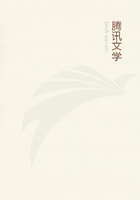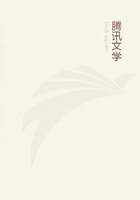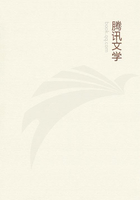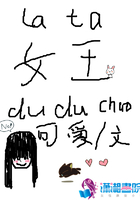This letter was dated the 15th of July, and by the beginning of August his advertisement was already before the public, inviting subscribers and announcing a private view of his balloon at the Lyceum, where it was m course of construction, and was being fitted with contrivances of his own in the shape of oars and sails. He had by this time not only enlisted the interest of Sir George Howard, and of Sir Joseph Banks, but had secured the direct patronage of the King.
But within a fortnight a most unforeseen mishap had occurred, which threatened to overwhelm Lunardi in disappointment and ruin. A Frenchman of the name of Moret, designing to turn to his own advertisement the attention attracted by Lunardi's approaching trials, attempted to forestall the event by an enterprise of his own, announcing that he would make an ascent with a hot air balloon in some gardens near Chelsea Hospital, and at a date previous to that fixed upon by Lunardi. In attempting, however, to carry out this unworthy project the adventurer met with the discomfiture he deserved. He failed to effect his inflation, and when after fruitless attempts continued for three hours, his balloon refused to rise, a large crowd, estimated at 60,000, assembled outside, broke into the enclosure, committing havoc on all sides, not unattended with acts of violence and robbery.
The whole neighbourhood became alarmed, and it followed as a matter of course that Lunardi was peremptorily ordered to discontinue his preparations, and to announce in the public press that his ascent from Chelsea Hospital was forbidden.
Failure and ruin now stared the young enthusiast in the face, and it was simply the generous feeling of the British public, and the desire to see fair play, that gave him another chance.
As it was, he became the hero of the hour; thousands flocked to the show rooms at the Lyceum, and he shortly obtained fresh grounds, together with needful protection for his project, at the hands of the Hon.Artillery Company. By the 15th of September all incidental difficulties, the mere enumeration of which would unduly swell these pages, had been overcome by sheer persistence, and Lunardi stood in the inenclosure allotted him, his preparations in due order, with 150,000 souls, who had formed for hours a dense mass of spectators, watching intently and now confidently the issue of his bold endeavour.
But his anxieties were as yet far from over, for a London crowd had never yet witnessed a balloon ascent, while but a month ago they had seen and wreaked their wrath upon the failure of an adventurer. They were not likely to be more tolerant now. And when the advertised hour for departure had arrived, and the balloon remained inadequately inflated, matters began to take a more serious turn. Half an hour later they approached a crisis, when it began to be known that the balloon still lacked buoyancy, and that the supply of gas was manifestly insufficient. The impatience of the mob indeed was kept in restraint by one man alone. This man was the Prince of Wales who, refusing to join the company within the building and careless of the attitude of the crowd, remained near the balloon to check disorder and unfair treatment.
But an hour after time the balloon still rested inert and then, with fine resolution, Lunardi tried one last expedient. He bade his colleague, Mr. Biggen, who was to have ascended with him, remain behind, and quietly substituting a smaller and lighter wicker car, or rather gallery, took his place within and severed the cords just as the last gun fired. The Prince of Wales raised his hat, imitated at once by all the bystanders, and the first balloon that ever quitted English soil rose into the air amid the extravagant enthusiasm of the multitude. The intrepid aeronaut, pardonably excited, and fearful lest he should not be seen within the gallery, made frantic efforts to attract attention by waving his flag, and worked his oars so vigorously that one of them broke and fell.
A pigeon also gained its freedom and escaped. The voyager, however, still retained companions in his venture--a dog and a cat.
Following his own account, Lunardi's first act on finding himself fairly above the town was to fortify himself with some glasses of wine, and to devour the leg of a chicken. He describes the city as a vast beehive, St. Paul's and other churches standing out prominently; the streets shrunk to lines, and all humanity apparently transfixed and watching him. A little later he is equally struck with the view of the open country, and his ecstasy is pardonable in a novice. The verdant pastures eclipsed the visions of his own lands. The precision of boundaries impressed him with a sense of law and order, and of good administration in the country where he was a sojourner.
By this time he found his balloon, which had been only two-thirds full at starting, to be so distended that he was obliged to untie the mouth to release the strain. He also found that the condensed moisture round the neck had frozen.
These two statements point to his having reached a considerable altitude, which is intelligible enough. It is, however, difficult to believe his further assertion that by the use of his single oar he succeeded in working himself down to within a few hundred feet of the earth. The descent of the balloon must, in point of fact, have been due to a copious outrush of gas at his former altitude. Had his oar really been effective in working the balloon down it would not have needed the discharge of ballast presently spoken of to cause it to reascend. Anyhow, he found himself sufficiently near the earth to land a passenger who was anxious to get out. His cat had not been comfortable in the cold upper regions, and now at its urgent appeal was deposited in a corn field, which was the point of first contact with the earth. It was carefully received by a country-woman, who promptly sold it to a gentleman on the other side of the hedge, who had been pursuing the balloon.

